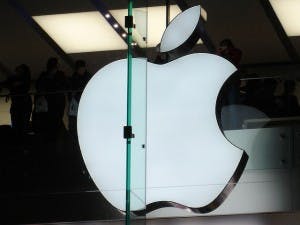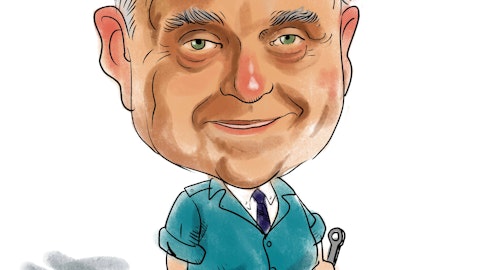
Innovation is one way of staying ahead, but buying rights to it can be quicker. Major tech companies know this and spend millions of dollars every year on patents they hope will give them a competitive advantage. Skip the research: Investors should take a look at which companies use this strategy well.
Apple Inc. (NASDAQ:AAPL) shows strength in patents
Patents have become essential to any technology company. It is surprising that one of the companies known for its innovation is actually a leader in purchasing patents. Apple Inc. (NASDAQ:AAPL) has been the biggest purchaser for the last two years and is now ranked ahead of industry giants Hitachi, Panasonic, Canon, and Sony.
That being said, Apple Inc. (NASDAQ:AAPL)’s play of the patent game can be seen in the number of its own patents, as well as the quality of these patents. In 2011, Apple was granted a total of 566 U.S. utility patents, a fivefold increase over the 110 U.S. utility patents it was granted in 2008. And this number does not include patents it acquired from elsewhere—for example, as part of the consortium that recently purchased the Nortel Networks patent portfolio.
What was billed as ‘the largest exchange of intellectual property rights in the Internet age’, Apple Inc. (NASDAQ:AAPL) and Microsoft Corporation (NASDAQ:MSFT) have agreed to buy from the bankrupt Nortel access to more than 6,000 patents covering key telecommunications technologies, from Internet services to wireless data networking. The consortium also included Sony, Research In Motion Ltd (NASDAQ:BBRY), Ericsson and EMC Corporation (NYSE:EMC).
Even after such rapid growth, Apple Inc. (NASDAQ:AAPL)’s patent portfolio is still dwarfed by those of others on the Electronics scorecard. Panasonic was granted 3132 U.S. utility patents in 2011, the most of any electronics company, followed by Hitachi (2924), Canon (2715), and Sony (2417). Clearly patents are where companies are looking. But Apple Inc. (NASDAQ:AAPL) is not buckling under the pressure. Apple recently filed two new patent applications that show a curved battery for future phone designs. Apple could be experimenting with a look for its iPhones or iPod Touch devices. Apple Inc. (NASDAQ:AAPL) is high on my list when looking through a patent lens. The quality of Apple’s current patents and future patents will be a pillar for growth.
Google Inc (NASDAQ:GOOG) closes in
Apple Inc. (NASDAQ:AAPL) is not alone among its competitors in attempting to develop a robust patent portfolio. Google Inc (NASDAQ:GOOG) has been acquiring patents from companies like International Business Machines Corp. (NYSE:IBM), has looked at acquiring patent-intensive InterDigital, and who could forget the heretofore unrewarding purchase of Motorola Mobility, which most assume was because of the company’s extensive patent portfolio. Google’s $12.4 billion purchase last year of mobile-phone pioneer Motorola Mobility Holdings partly for its trove of more than 17,000 patents is showing signs it wasn’t much of a bargain.
A judge recently ruled in favor of Microsoft Corporation (NASDAQ:MSFT) over the royalties claimed by Motorola for the use of its technology in Microsoft’s Xbox. According to Reuters, “Motorola had sought as much as $4 billion a year for use of its so-called standard, essential wireless and video patents, while Microsoft Corporation (NASDAQ:MSFT) argued its rival deserved about $1 million a year. Robart decided the appropriate payment was about $1.8 million.”

